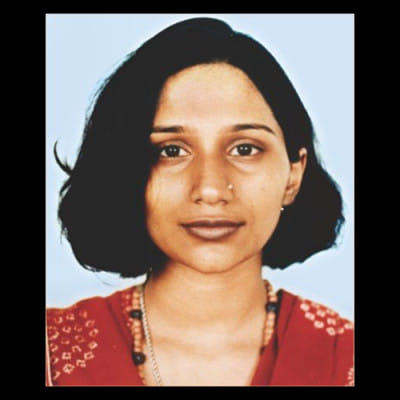Next hearing on May 10

The Supreme Court yesterday continued hearing the appeals in a case filed over the rape and killing of Shazneen Tasnim Rahman in her Gulshan residence nearly 18 years ago.
A five-member bench of the Appellate Division headed by Chief Justice Surendra Kumar Sinha also set May 10 for the next hearing.
Lawyers Khandker Mahbub Hossain and SM Shahjahan argued on behalf of the accused, while Nozrul Islam Chowdhury, AM Aminuddin, SM Abdul Mobin and Sarwar Ahmed represented the plaintiff. Attorney General Mahbubey Alam and Deputy Attorney General Khondker Diliruzzaman appeared for the state.
The hearing started around 9:15am and continued till noon with a half-an-hour break.
The apex court heard the evidence on which the trial court delivered its verdict. The evidence was considered by the High Court too.
The SC also held hearing on the statements of some important witnesses, confessional statements of the accused and the autopsy report.
Towards the end of the hearing, the SC set May 10 for hearing from the state counsels on some law points.
On March 29, nearly 18 years after Shazneen was killed, a three-member bench of the Appellate Division led by the chief justice started hearing the appeals of five convicts who challenged their death sentences in the case.
The other two bench members were Justice Hasan Foez Siddique and Justice Mirza Hussain Haider.
On Tuesday, a five-member larger bench was formed by including Justice Nazmun Ara Sultana and Justice Md Imman Ali in it. Yesterday's hearing was held before that bench.
EIGHTEEN YEARS' WAIT FOR JUSTICE
According to the case documents, Shazneen Tasnim Rahman was brutally murdered at her house in the capital's Gulshan area on April 23, 1998.
The following day, her father Latifur Rahman filed a murder case with Gulshan Police Station under section 302 of Penal Code.
On September 4 the same year, the CID filed a case under Women and Children Repression [Prevention] Act for rape and murder.
After investigations, police submitted a charge sheet in the first case to the Additional Metropolitan Sessions Judge's Court-1 in Dhaka and another charge sheet in the second case to the Special Tribunal for Prevention of Women and Children Repression.
The courts framed charges in both the cases.
The accused are Syed Sajjad Mainuddin Hasan, who was a contractor for renovating Latifur Rahman's house, and his accomplice Badal, domestic help Shahidul Islam Shahid, housemaids Estema Khatun Minu and Parvin who are sisters, and carpenter Shaniram Mandal.
The accused challenged the indictment orders in both the cases before the High Court.
On July 6, 1999, the HC bench of Justice Mohammad Abdul Karim and Justice ABM Khairul Haque (who later became chief justice) ruled that the murder case against the accused pending with the Additional Metropolitan Sessions Judge's Court would be stayed because the Special Tribunal for Prevention of Women and Children Repression had already indicted the accused for killing.
The bench also gave the go-ahead to continue the case at the tribunal for murder and rape.
In its verdict, the HC bench said rape and murder are two distinct and separate offences. It is to be mentioned that the autopsy report of Shazneen clearly stated that she was raped before murder.
The accused challenged the HC verdict before the Appellate Division.
On November 11, 1999, a four-member Appellate Division bench, comprising the then Chief Justice Mustafa Kamal, Justice Latifur Rahman (who later became CJ), Justice AM Mahmudur Rahman and Justice Mahmudul Amin Chowdhury (who later became CJ), rejected their appeal.
In its verdict, the SC said the HC rightly stayed all further proceedings of the case at the sessions judge's court and gave the go-ahead to proceed with the case at the tribunal.
It is such a case where murder was not committed during rape. “It is a clear case of rape and then murder. These are two distinct and separate offences. So the question of double jeopardy does not arise," the apex court observed.
After getting the SC's approval, the tribunal went on with proceedings in the case. After five years of court proceedings, Judge Kazi Rahmat Ullah of Special Tribunal for Prevention of Women and Children Repression in Dhaka gave the verdict in the case on September 2, 2003.
The court gave death penalty to all the six accused on the charges of rape, planning the murder and abetting the offences.
The convicts then appealed to the HC against the tribunal verdict. On July 10, 2006, the HC confirmed the death penalty of Shahid, Badal, Minu, Parvin and Sajjad. It, however, acquitted Shaniram Mandal.
Later, four of the five accused -- Sajjad, Badal, Minu and Parvin -- filed separate leave-to-appeal petitions, seeking permission for filing regular appeals against the HC verdict.
On April 26, 2009, the Appellate Division accepted their leave-to-appeal prayers.
Later, the four lodged appeals with the SC. Shahid also filed an appeal with the apex court through the jail authorities.
Around seven years after the filing of the appeals, the Appellate Division started hearing those together on March 29.

 For all latest news, follow The Daily Star's Google News channel.
For all latest news, follow The Daily Star's Google News channel. 



Comments